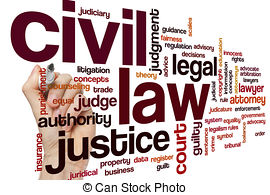
Civil procedure covers the process of civil litigation. Two themes unite the course material: First, how can society best provide a just and fair process for dispute resolution? Second, how should society allocate decision-making and dispute-resolution authority among various institutions, including courts and legislatures, state courts and federal courts, and among various states? The course is divided into different topics. Topic-1 introduces the basic elements of the civil justice system, the principal institutions in civil dispute resolution, and the major concepts and themes that will arise throughout the course. Topic-2 focuses on the question of which courts can be used for what types of litigation, examining the issues of personal jurisdiction, subject matter jurisdiction, and venue. Topic-3 covers pleading and pretrial procedure, including the filing of the complaint, the various responsive pleadings and motions that a defendant may file, the joinder of claims and parties, discovery of the facts, and pretrial dispositions. Topic-4 treats the binding effect of judgments.
- Teacher: Md. Safiullah
